How the Left Fooled States Into Boosting Democratic Turnout—and How to Stop ItERIC’s Data-Driven Origins Yet all this microtargeting machinery is only as good as the voter files that inform it. Critically, while Catalist and others could purchase those voter files, no such list of unregistered people exists. State motor vehicle departments and other agencies collect vital information on potential voters, but that data is inaccessible to companies under federal privacy laws. Worse, the most desirable demographic—young people—typically have no credit history or utilities in their name, making them virtually invisible to political data vendors. What was needed to reach this electoral goldmine was a central database on all 65 million eligible-but-unregistered individuals, but that was impossible with traditional data-collecting methods. Enter ERIC. ERIC began life in 2012 as a project of the Pew Center on the States (an arm of the liberal funder Pew Charitable Trusts) under David Becker, Pew’s director of election initiatives. If the goal was to get states to share valuable voter data with a private organization, ERIC needed a powerful selling point and the guise of political neutrality. So for the next four years Becker led the push to lobby nearly two-thirds of the states into joining ERIC—always marketing it as an opportunity to improve their voter rolls more effectively and affordably than they could do themselves. Early ERIC funding came from George Soros’s Foundation to Promote Open Society, which granted $725,000 in 2011 “to support the Pew Center on the States’ voter registration modernization initiative” and “expand [its] scope and scale.” The idea for ERIC may even have originated with Soros, who after all had previously helped found the Democrats’ premier data firm, Catalist. In 2010, Soros’ Open Society Foundations (OSF) revealed its goal of using voter registration “modernization” programs as cover to convince states they needed outside help to maintain their voter rolls. OSF termed it “reform dialogue.” OSF rallied two more left-wing organizations to the cause: the Brennan Center and Advancement Project, both of which oppose voter ID laws and lobby for the Left’s usual raft of election “reforms” such as same-day registration and felon re-enfranchisement. (Recall that the Brennan Center had already called for mass voter registration campaigns “through a modernized registration system” to advance the “progressive agenda” beginning in 2010.) Hidden Intentions A Pew Center on the States report in 2010 couched ERIC’s true goal of gathering voter data this way: The private sector consistently draws upon a much wider array of data sources to verify an individual’s information than is currently used by election offices. Bringing this same approach to voter rolls--specifically, comparing registration records against data from multiple sources and multiple states—would enable election officials to ensure that their files reflect the most up-to-date and accurate information on eligible voters in their jurisdiction [emphasis added]. Pew proposed a “common data exchange” in which member states would “submit their current lists and motor vehicle data” to a “data center,” which would “standardize, collate, and match” it with “data such as U.S. Postal Service National Change of Address information, Social Security death index data,” “felon data,” citizenship status for naturalized Americans, “public assistance agency data,” “individual address history,” “military data . . . for military members and their families,” “state tax data,” and “university data [on] student names, ages and addresses.” ERIC uses sophisticated data-matching software developed by Jeff Jonas, a data scientist who developed the product for supermarket chains and casinos to reveal complex consumer relationship information. Becker has called Jonas the “mastermind behind the software and architecture that powers ERIC.” Jonas also sits on the group’s advisory board and is a board member for Becker’s other organization, the Center for Election Innovation and Research (CEIR). Pew’s proposed data center would supposedly be “controlled by the states.” By 2012, seven had joined. But these states did not conceive of ERIC nor draft the membership agreement. In fact, Pew’s blueprint for ERIC and the technology that powered it were published two years before the first state submitted its membership agreement. ERIC membership requires that states transmit all inactive and active voter files in their registration databases and “all licensing or identification records contained in” their DMVs “at least every sixty (60) days.” These files must include a given individual’s name, address, date-of-birth, driver’s license or state ID number, Social Security Number (last four digits), phone number, and email address—private information no data vendor in America has access to. In a single stroke, ERIC had succeeded in building the most comprehensive, widespread, and valuable voter file the country had ever seen—updated practically in real-time. With it, a campaign could become unbeatable. Amazingly, this feat had been achieved with a tremendous lie, yet Republican lawmakers were only too happy to play along. Feeding the Left’s Election Machine Given ERIC’s shady origins, it’s no surprise that its riches ended up in the clutches of Becker’s newest group, the Center for Election Innovation and Research (CEIR), which he established in 2016. It’s important to point out that, unlike ERIC, CEIR does not pretend to political neutrality. The group has received six-figure grants from the Democracy Fund, a major funder to left-wing causes bankrolled by eBay founder and Democratic donor Pierre Omidyar. In 2020, 99 percent of the $12 million CEIR granted in Michigan to a virtually inactive nonprofit ultimately ended up in the coffers of two Democratic consulting firms, which conducted “nonpartisan voter registration” using ads urging Michiganders to vote. (It’s very likely the firms aimed their messages at likely Democrats.) CEIR is a creature of the Left, which makes its close relationship with ERIC alarming. A September 2020 email from CEIR researcher Jenny Lovell to Georgia elections officials describes a complex process: ERIC data is transferred to CEIR, which generates a list of eligible-but-unregistered individuals to target with registration mailers (paid for by states); that list is then transmitted from CEIR back to ERIC, and finally on to the states. Put another way, a partisan third party is directing taxpayer-funded registration drives using sensitive voter data acquired from ERIC, with no public oversight or accountability. It’s difficult to imagine the Left tolerating such a unique scheme if CEIR was a conservative organization, yet ERIC would have the public believe this is perfectly acceptable. More concerning still is that we don’t know with whom CEIR shares this voter data. Catalist? Left-wing voter registration nonprofits? That lawmakers cannot answer these questions draws ERIC’s trustworthiness into serious doubt. Forced Registration
Hidden in ERIC’s membership agreement is a provision requiring states to attempt to register the eligible-but-unregistered individuals uncovered by the data it accumulates, or else risk being booted from the compact—hence the list generated by CEIR. For obvious reasons, ERIC downplays this requirement in public—its 2020 IRS Form 990 disclosure merely notes that it helps members “educate eligible citizens on how to register to vote”—but the ERIC-friendly Advancement Project puts it very differently: ERIC states are also required to contact eligible, but unregistered people and “educate them on the most efficient means to register to vote.” Registering the unregistered is mandatory. Indeed, ERIC states are required to initiate contact with at least 95 percent of people identified by ERIC who are eligible or potentially eligible to vote [emphasis added]. Failure to comply results in automatic removal [original emphasis] of the state from ERIC membership. It’s unclear what “potentially eligible to vote”—as opposed to merely “eligible to vote”—means. The document also asks, “Does the program [ERIC] result in the reduction of unlawful double voting?” The answer given: “ERIC’s purpose is not to reduce the number of alleged double voters.” Mass registration drives are not inexpensive. The Virginia Department of Elections estimated in 2020 that the total cost of its ERIC membership and “associated mailing costs” average $300,000 per year, just $39,000 of which accounts for dues. To offset the added expense, Pew Charitable Trusts offered grants from 2014 to 2017 to help states “in making the initial outreach to eligible citizens who are not registered to vote”—provided they join ERIC by a deadline set by the foundation. (Pew also subsidized ERIC itself through 2019.) In exchange, Pew demanded information on:
The Red State Exodus Fortunately, Republicans are fighting back in force. In January 2022, Louisiana became the first state to exit ERIC after Secretary of State Kyle Ardoin announced that “possibly partisan actors” may be using “ERIC network data for political purposes, potentially undermining voter confidence.” Louisiana was one of the first states to join ERIC, beginning in 2014, a major blow to the organization’s credibility. Later that year Alabama’s newly elected secretary of state, Wes Allen, announced he would withdraw the state from ERIC as his first act in office, a pledge he made good on in early 2023. Amazingly, Allen campaigned in part on exiting ERIC thanks to the work of grassroots election integrity groups active in Alabama. In February 2023 he visited ERIC’s headquarters in Washington, D.C., only to discover “that the location was actually the home of a virtual shared workspace and that no ERIC headquarters existed at the location.” From Allen: What I found was that there was no ERIC headquarters at that address. There were no employees. There were no servers. There was no ERIC presence of any kind. Instead, I found a virtual office that is rentable by the day. What it was missing was people, servers and any sign of the ERIC team. The turning point came on March 6, 2023, when Florida, West Virginia, and Missouri announced they were departing ERIC and would immediately cease to send data to the compact. Their reasons were devastating. Missouri pointed out that ERIC failed to address issues of multi-state voters and required “unnecessary mailings.” West Virginia criticized ERIC’s “partisanship in voter registration and list maintenance, much less in the administration of our nation’s elections.” Florida expressed frustrations over its year-long efforts “to reform ERIC through attempts to secure data and eliminate ERIC’s partisan tendencies, all of which were rejected.” “We have lost confidence in ERIC,” Secretary of State Cord Byrd explained. A few days later elections officials in Alaska and Texas announced they were considering withdrawing her state from the compact, with distraught leftists calling it a “conspiracy theory whirlwind” by “right-wing voting fraud activists.” Ohio Secretary of State Frank LaRose threatened to pull his state out of ERIC if the compact didn’t drop its registration requirements. State officials suggested that they were considering building another version focused on cleaning voter rolls without ERIC’s troublesome requirements. Regardless, the National Voter Registration Act of 1993 already requires states to maintain accurate voter lists, something they’re already equipped to do without a vulnerable third-party data warehouse. It’s time for the rest of ERIC’s members to follow suit, starting with Republican-led states: Alaska, Georgia, Iowa, Ohio, South Carolina, Texas, Utah, and Virginia. Toss in Kentucky, a conservative state with a Democratic governor and no shortage of ERIC skeptics, and an exodus of red states would cripple ERIC’s ability to gather effective data and render it practically worthless to the Left. A voter file limited to Democratic strongholds would be far less valuable, though still dangerous. Remember that the “problem” of voter roll maintenance was contrived to enable the “solution”—ERIC—to send valuable voter data to third-party organizations such as CEIR, with little-to-no accountability. Many of ERIC’s claims ring hollow. Interstate sharing of private information on individuals who aren’t registered to vote does nothing to enhance voter roll quality. Voters receive no benefit from states sharing this personally identifiable information, only partisans looking for an election edge. Republicans must understand that they can maintain clean, accurate voter rolls without resorting to a private third-party organization like ERIC. Interstate agreements are already common—in fact, they’re mandated by the 2002 Help America Vote Act (HAVA). The Social Security Administration shares death records with states through the Help America Vote Verification (HAVV) system. State voter rolls are updated when a registered voter submits his change-of-address form to the local DMV. U.S. Postal Service partners submit those change-of-address records to state agencies. And many states mandate the use of other agency data for voter list maintenance. Here’s the bottom line: It’s time the states get serious about exiting ERIC. The future of our elections is at stake. This report was made possible by original research from Heather Honey and Verity Vote. www.restorationofamerica.com/restoration-news/eric/eric-the-best-data-money-cant-buy-pt-2/
0 Comments
Leave a Reply. |
AuthorBill Olson Archives
April 2024
Categories
All
|


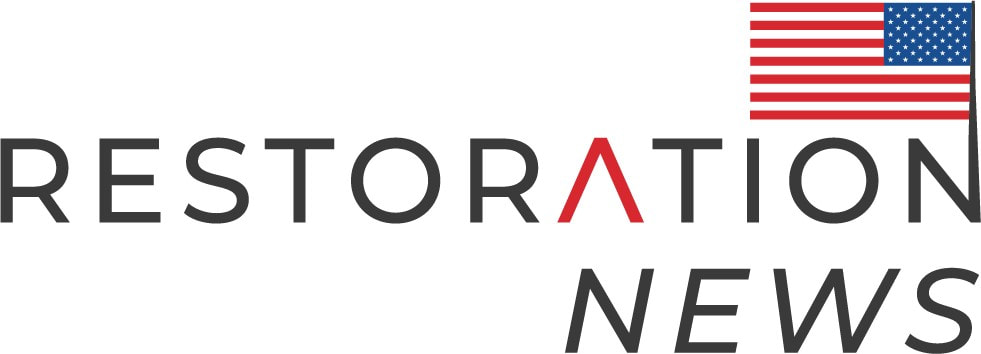
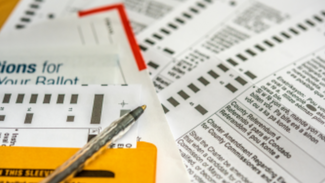
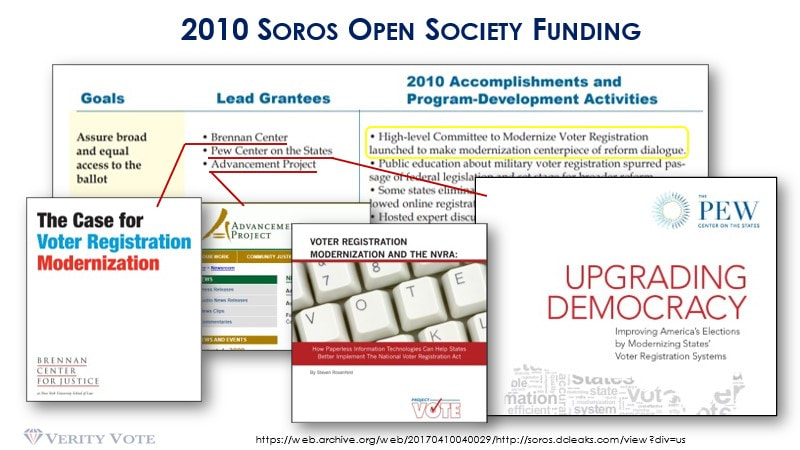
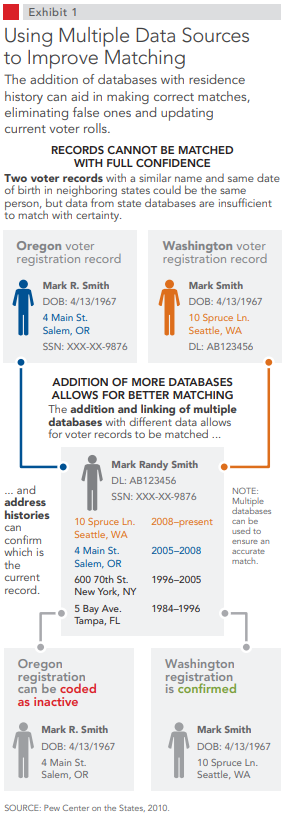
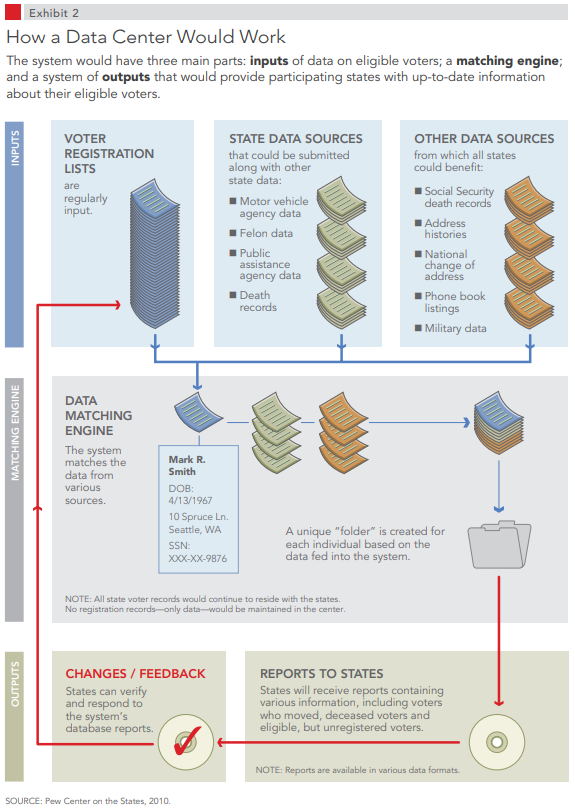
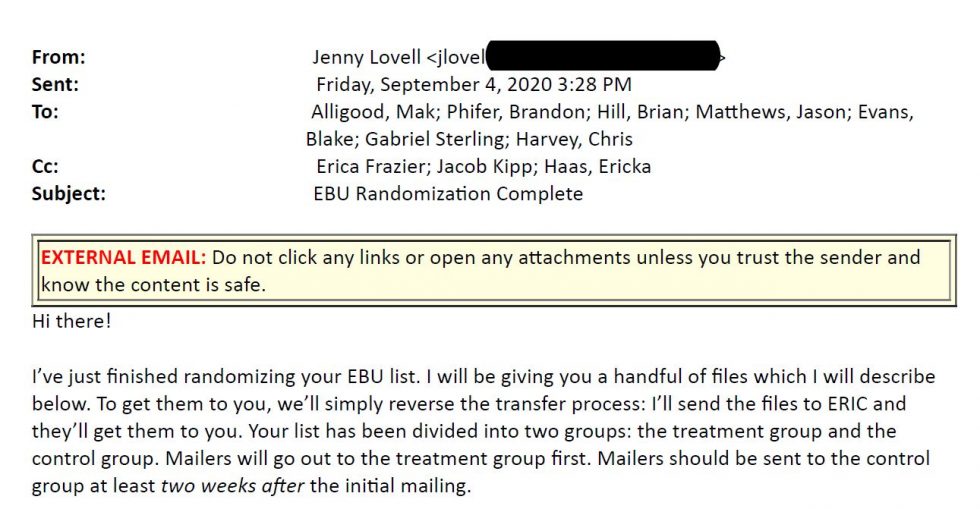
 RSS Feed
RSS Feed
